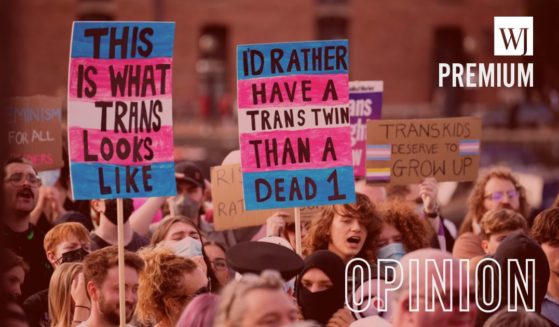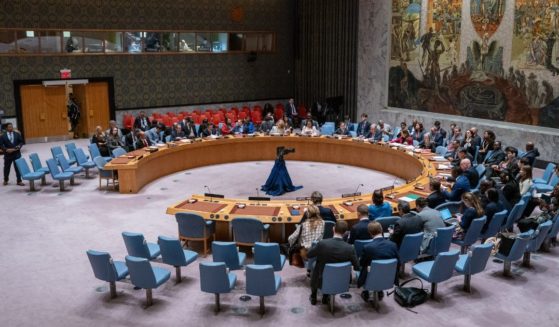Study Claims Transgenders Suffering Because Straight People Aren't Dating Them
Researchers have long contended that transgender and “non-binary” individuals are at a substantially higher risk of mental illness and suicidal thoughts or actions than the rest of the population.
The attempted suicide rate ranges from 29.9 to 50.8 percent among transgender adolescents according to a paper released by the American Academy of Pediatrics in 2018 — research often cited by even the most ardent LGBT advocacy groups.
Now, researchers are arguing that these individuals are further suffering because of American’s unwillingness to date transgender, “non-binary” and questioning individuals.
According to the researchers, Karen L. Blair and Rhea Ashley Hoskin, participants in their survey were asked to consider what type of individual would be included in their “hypothetical” pool of “potential dating partners.”
Participants were then given the options of “a cisgender woman,” “a cisgender man,” “a transgender woman,” “a transgender man” and “a person with a non-binary gender identification,” and told to choose all that apply.
Unsurprisingly, the two Canadian academics found that the vast majority of their 958 respondents would not consider dating someone who identifies as transgender.
“Recently, my colleague and I asked this question of just under 1,000 participants and we published our findings in the Journal of Social and Personal Relationships,” Blair wrote in a Sunday Psychology Today article laying out the pair’s findings.
“Our results indicated that 87.5% of the participants who were asked this very question only checked off the cisgender options and excluded transgender and non-binary individuals from their hypothetical dating pool,” she added.
And Blair argues, though the question may seem simple or even foolish, that it is anything but “inconsequential.”
“After all, relationships are one of our most important sources of social support. Indeed, our relationships play an important role in our overall mental and physical well-being and our relationships are a better predictor of how long we’ll live than smoking or obesity!” she continues.
Therefore, if relationships are a better indicator of health, well-being and life expectancy, the smaller “dating pool” created by lack of attraction from straight, “cisgender” people must have profound impacts on transgenders, Blair contends.
The remainder of her Psychology Today article did not shy away from the opportunity to not-so-subtly blaming straight people’s lack of attraction to the transgender community for higher rates of suicide and other mental health problems.
Progressive as she is, Blair included a disclaimer indicating that the goal of her research was not to shame anyone for their preferences or tell them who to pursue — everyone does have the “freedom to decide whom they date,” she said.
But just as previous research was done on the acceptance of different races into the American culture and dating pool, Blair argues her research will serve to illuminate the underlying “prejudice” that leads the straight community to find transgenders unattractive.
“However,” Blair wrote. “Understanding the extent to which trans individuals are excluded from the realm of dating can serve as a benchmark for where society currently stands with respect to including trans and non-binary individuals.”
And it is not until the straight community begins dating transgenders at a higher rate that Western civilization will truly show itself to be accepting and safe for the LGBT community.
“(I)t is one thing to make space for diverse gender identities within our workplaces, schools, washrooms and public spaces,” Blair wrote. “But it is another to fully include and accept gender diversity within our families and romantic relationships.
“Ultimately, however, this research underscores the consequences of shared societal prejudices that impact our trans friends, partners, family members, and coworkers on a daily basis.”
Truth and Accuracy
We are committed to truth and accuracy in all of our journalism. Read our editorial standards.











